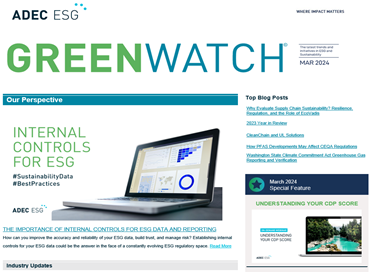GreenWatch
Read the latest in ESG and sustainability news, trends, and thought-leadership.
Past Issues
2024
2023
Talk with our team
We’ll set you up with a free consultation with one of our team members, where
we’ll discuss your strategic goals—and how we can help you achieve them.
we’ll discuss your strategic goals—and how we can help you achieve them.
By accomplishing and submitting this form, you authorize us to collect and store your personal information, and to use and process them in connection with your application[s]. You also agree to keep your information updated by re-submitting this form or by emailing us at esginfo@adec-innovations.com.
You agree to hold us free and harmless for any damage or injury that may arise from the collection, storage, or processing of your personal information. To know more about our Data Privacy Policy, please visit privacy-statement.
